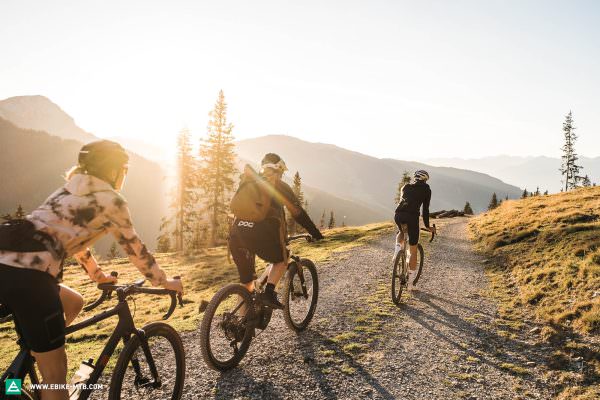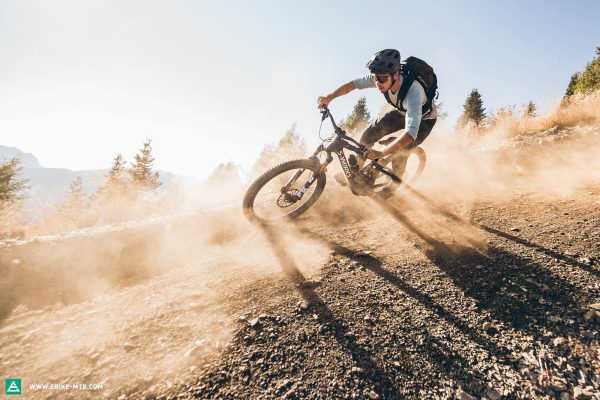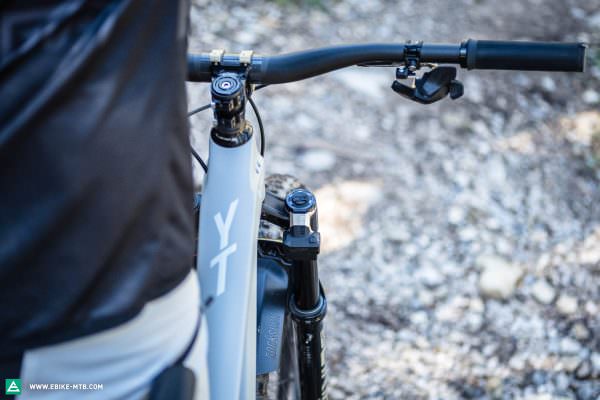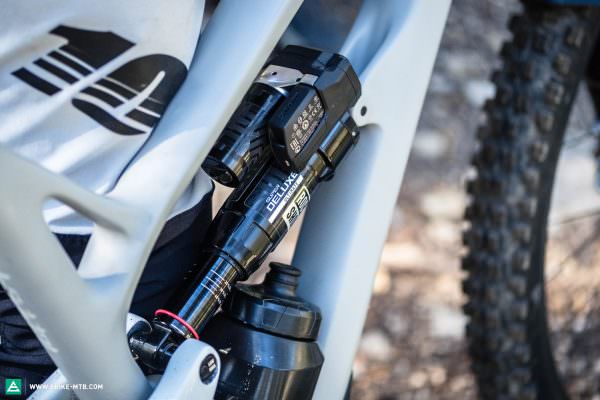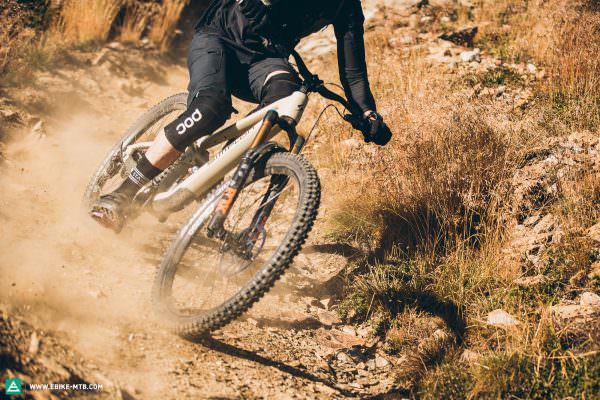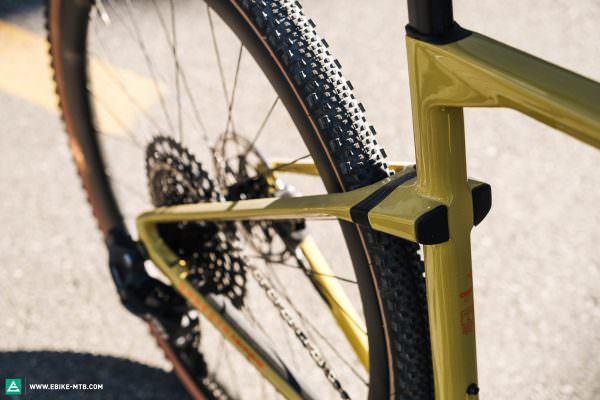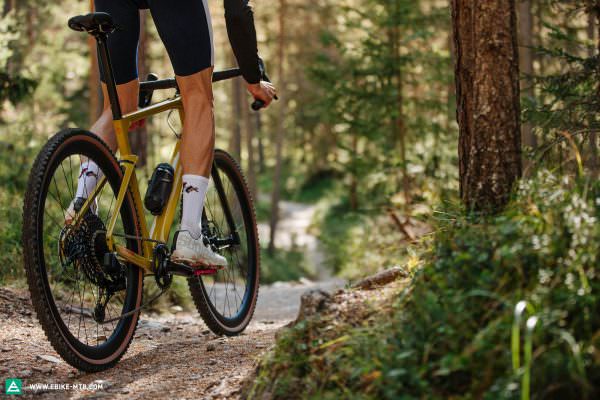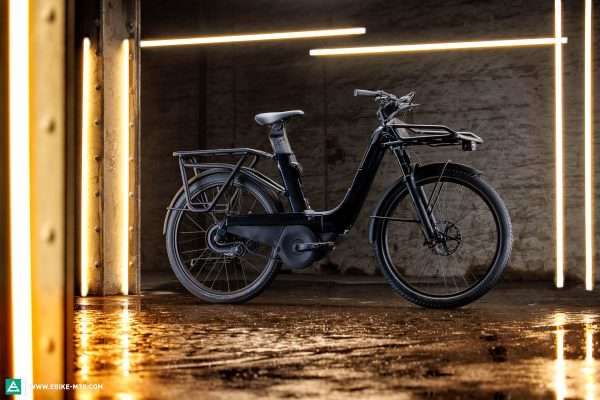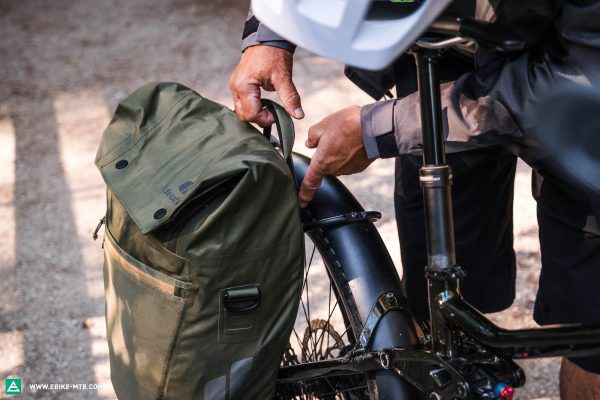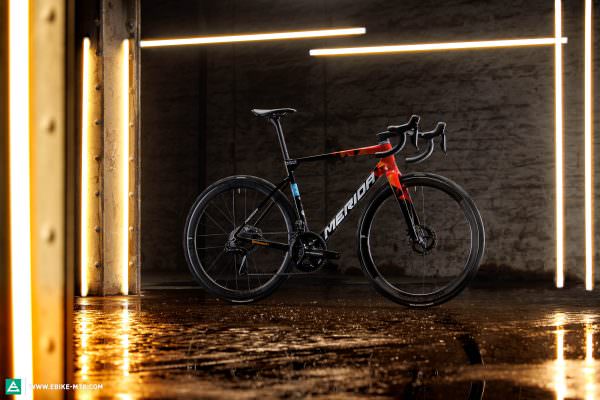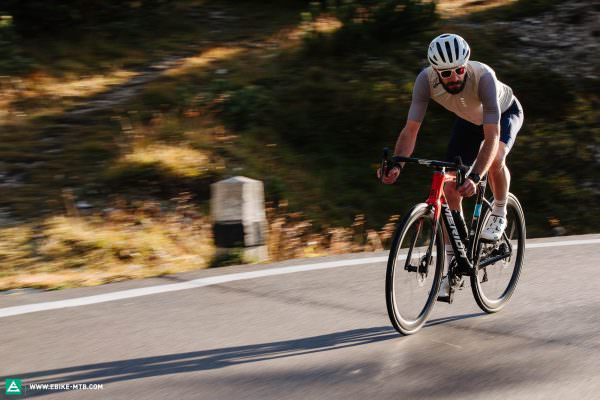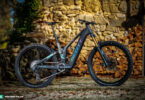Trekking, city, aero, women’s, men’s, MTB and the list goes on on… The established bicycle categories have long been etched into the minds of cyclists and the industry, to the detriment of both! The most innovative bikes of the year manage to combine seemingly contradictory properties, performing well in a variety of situations.
Bikes need to be categorised, right? It’s hard to think of bikes without thinking of traditional categories. Still, categories like trekking, MTB, road and aero, to name but a few, don’t provide sufficient differentiation of the market. At least, that’s how it seems. According to the bike industry, the solution to this is diving down a rabbit hole of sub-categories and making products that claim to be perfect for a specific, very narrow range of uses. This only serves to confuse and frustrate customers when looking for a new bike. The riding they do on one bike spans lots of different “categories”. Fortunately, the best products of the Design & Innovation Award 2022 prove that they can cater to a much broader range of uses than advertised by the brand or initially assumed by the customer. As such, traditional bike categories and all their offshoots have become almost irrelevant in assessing and classifying bikes. It’s time to rethink bike categories!
Touring joy and downhill fun in one – The mountain bike
Every trail is unique and every mountain bike ride puts its own demands on riders and their bikes. Due to this, bikes have been developed for specific disciplines such as downhill, touring, enduro and cross country. However, the best mountain bikes have always been a lot more versatile, allowing you to have fun across a much broader range of scenarios. For 2022, they’re set to become a whole lot better thanks to innovative, electronic technology, the keyword being, electronic. RockShox’s fully automatic Flight Attendant suspension allows gravity oriented bikes to become a lot more versatile, making the rear suspension significantly more efficient. By adapting the suspension to suit different terrain on the fly, freeride and enduro bikes can break out of predefined subcategories and perform just as well as all-round mountain bikes on any kind of terrain while retaining their descending prowess.
The Specialized S-Works Kenevo SL does just that but it does so without electronic suspension. Instead, it relies on a compact, inconspicuous and energy-efficient motor, that assists the rider with a torque output of up to 35 Nm. The motor is powered by a smart, modular battery system, so riders can adjust the capacity to suit the planned route. Thanks to the natural ride feel of the Specialized SL 1.1 motor and the small weight penalty over the analogue Specialized Enduro, the boundaries between gravity and touring, electronic and analogue mountain bikes are becoming increasingly blurred. According to our jury, the Kenevo SL sets the bar for the future of all mountain bikes.
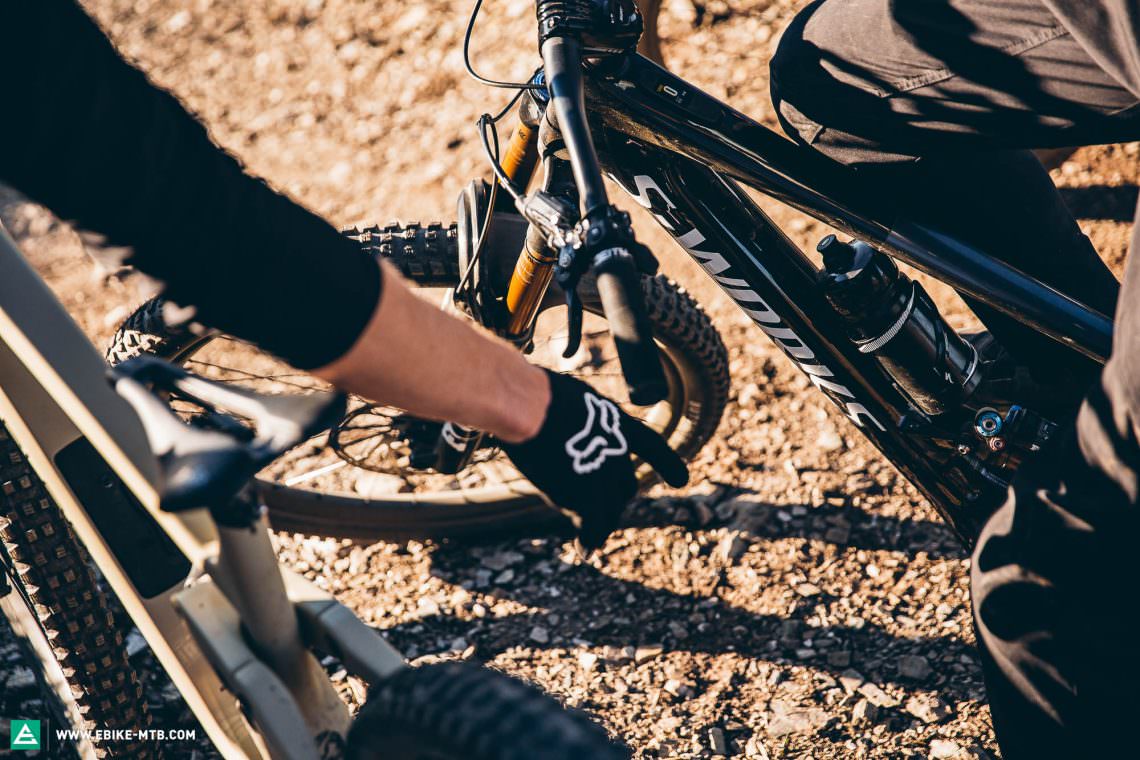
Pink it and shrink it – Gender is no longer relevant in defining bike categories
Some bike brands traditionally use a rider’s age and gender to determine which bike is right for them. However, personal preference and the intended use should be the factors that determine which bike a customer chooses. The highly capable and versatile Simplon Rapcon shows the industry how it’s done: rather than relying on different models for men and women, they adapt the kinematics of the rear suspension and the chainstay length to suit the different frame sizes. As such, smaller and therefore usually lighter riders are able to use all the travel on the smaller sizes, whereas bigger and heavier riders will have enough reserves on the bigger sizes to avoid bottoming out.
The QiO EINS P5 is another example of a gender-neutral bike, capable of being adapted to suit riders of almost all sizes in a few simple steps. The low step-through makes getting on the bike easier for both men and women while also offering increased safety and freedom of movement when encountering tricky situations in the urban jungle.
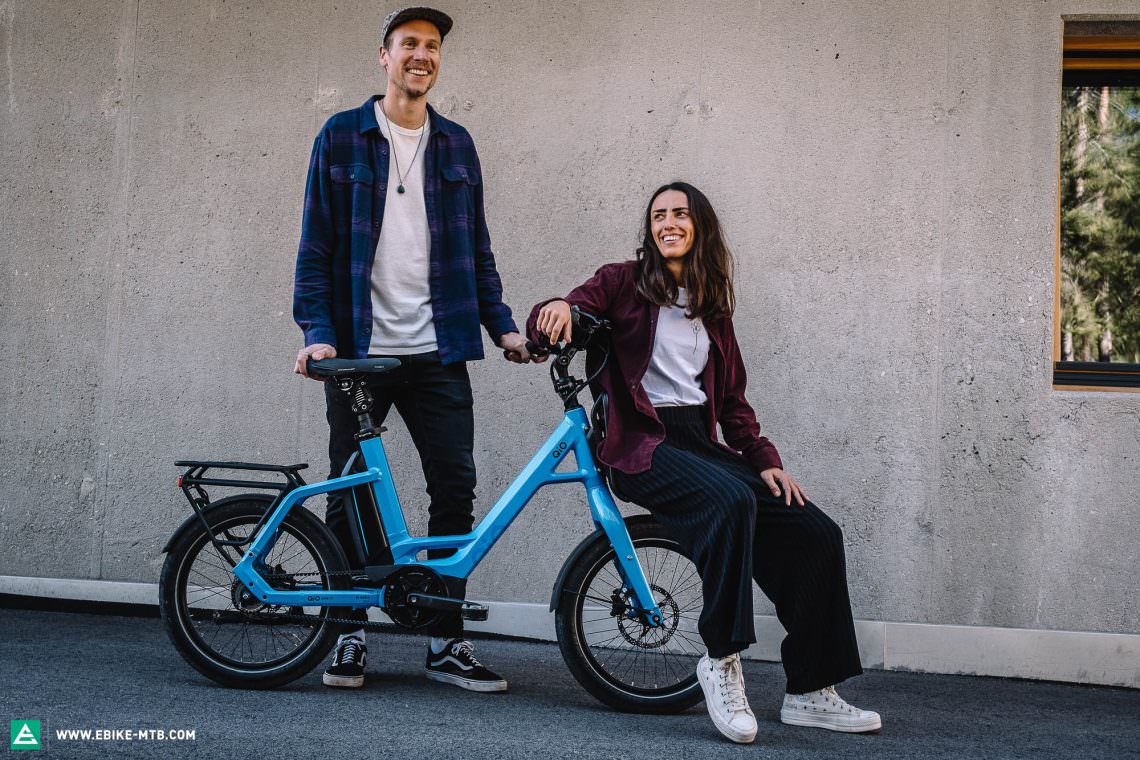
Gravel – From a sub-category to the perfect all-rounder
Gravel has become synonymous with versatility. With the release of unbelievably versatile yet high-performance products, the previously oft-misunderstood subcategory of bikes with drop-bars is proving to be THE BIKE of 2022. Bikes like the BMC URS LTD throw conventional concepts steeped in tradition and categories out, combining the best characteristics of all categories in one product. Front and rear suspension for the kind of comfort and traction previously reserved for mountain bikes, a multitude of riding positions from the road bike scene and the luggage hauling capabilities of a trekking bike. Regardless of whether you’re on the road, commuting, bikepacking or riding singletrack, the BMC URS LTD can take whatever you throw at it, making it the perfect bike for many riders in search of one bike to do it all. The Willier Rave SLR can’t be categorised either, cutting an equally fine figure on asphalt roads and woodland paths. Best of all, it doesn’t feel significantly compromised in either terrain. Instead, it delivers both as a high-performance road bike and a gravel specialist. Brilliant!
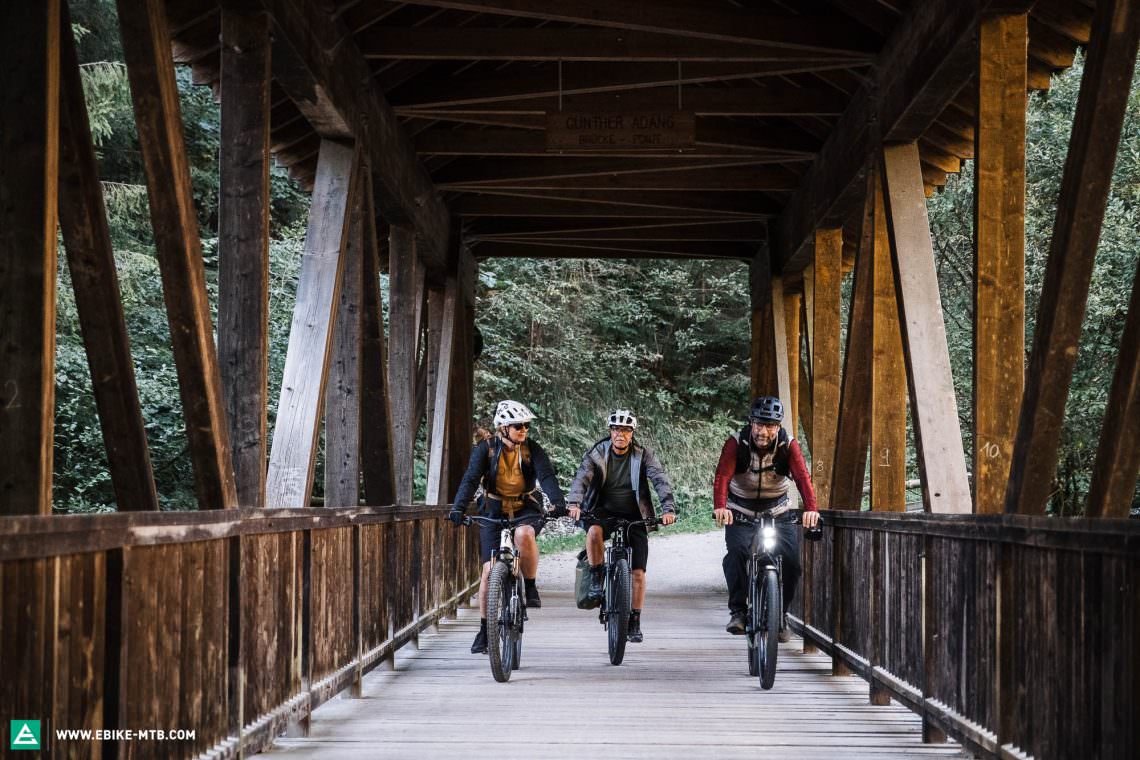
Trekking is dead, long live trekking!
Trekking bikes also need to be rethought. The traditional concept centring around a comfortable riding position and skinny, fast-rolling tires has served its time. Why? Because the latest generation of eMTB motors and large capacity batteries are efficient enough for very, very long ranges. As such, minimising the rolling resistance of a trekking bike is trumped by considerations of everyday practicality and comfort. Fully equipped eMTBs are replacing traditional trekking bikes thanks to front and rear suspension and high-volume tires. At its core, the use case remains the same but you end up with a much more versatile bike to do the job. The Vaast E/1 also borrows a lot of eMTB tech, including a powerful motor, front and rear suspension and wide tires. Combined with practical everyday accessories and a super comfortable, step-through frame, it can perform well in almost all situations from commuting in the urban jungle and multi-day tours all the way to gravel adventures. That’s how modern trekking is done!
Specialists remain unbeatable in their category
While the most innovative bikes of 2022 are more versatile than ever, bikes that are designed for specific, competitive disciplines continue to represent the bleeding edge of bike technology. A thoroughbred race bike like the Merida SCULTURA TEAM is ready to take on the competition and earn the yellow jersey right off the shelf, representing the very best in speed and performance and helping shape the future of road racing. Despite the performance benefits a specialist bike like the Merida offers in a race, it doesn’t shun versatility either. It’s surprisingly comfortable for a race-oriented bike, cutting a fine figure on more casual rides. As such, many specialists will remain at the top of their discipline, though, to a certain extent, they are also becoming more versatile.
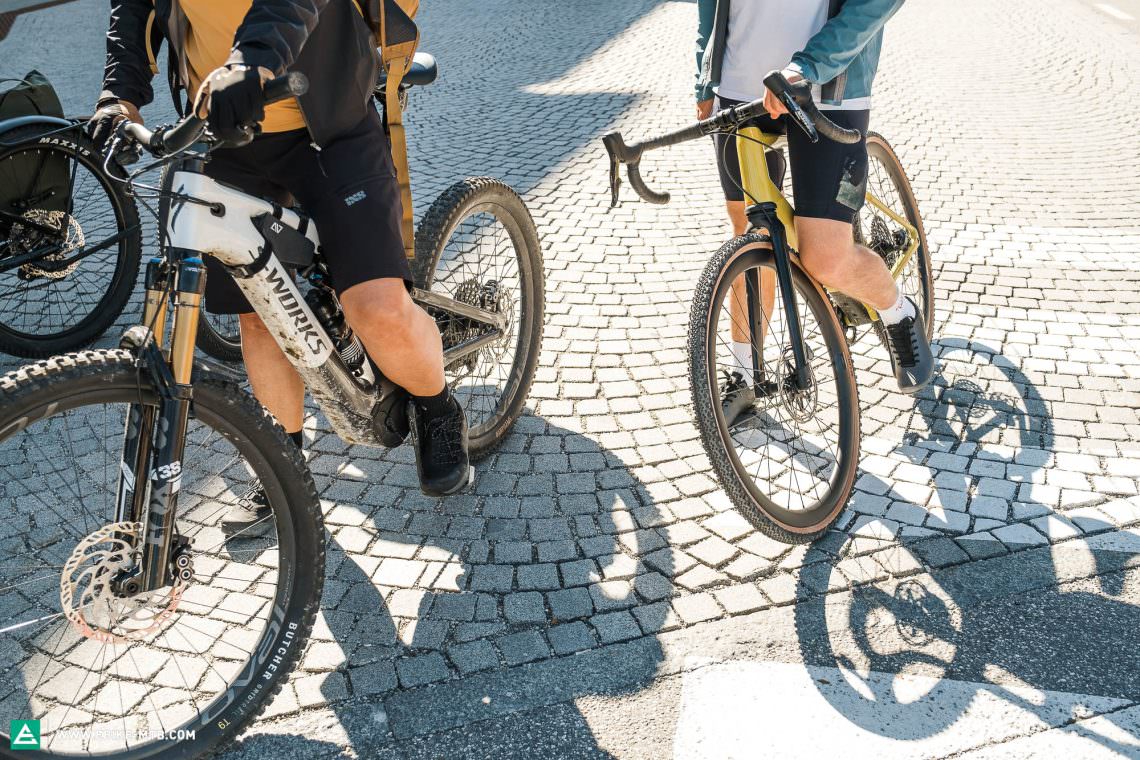
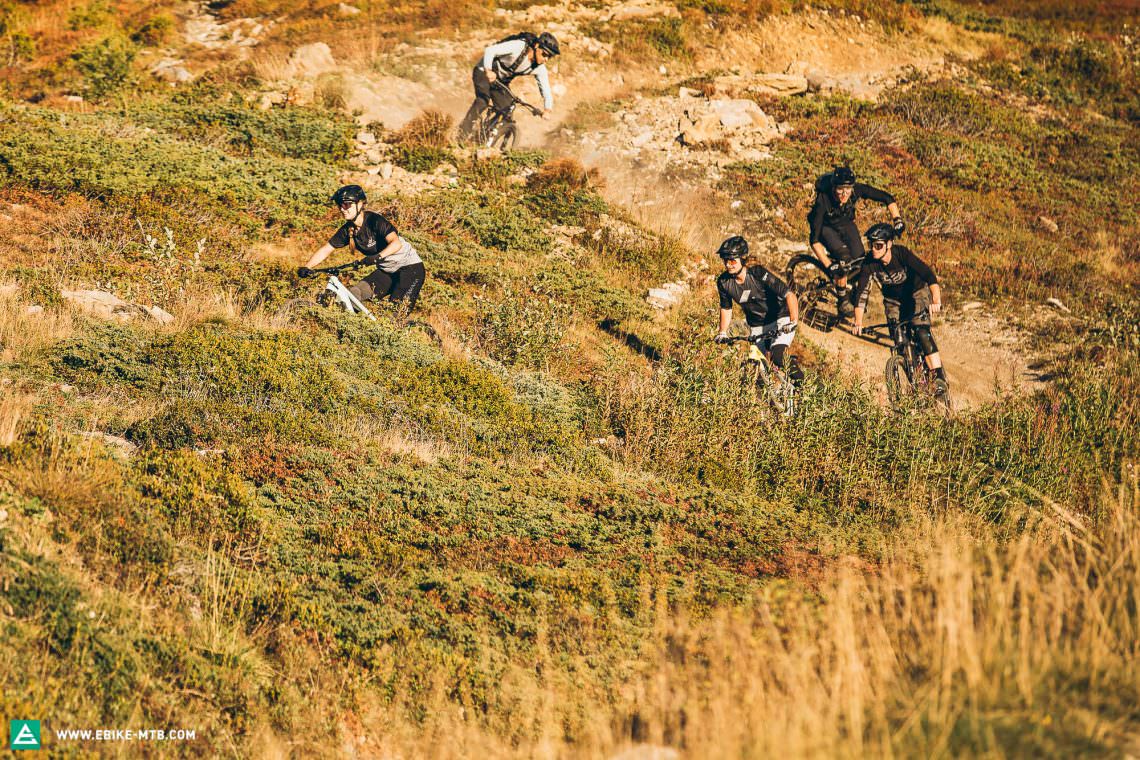
It’s no longer necessary to categorise most bikes
The bike industry is developing products at a blistering pace, implementing new technologies and innovations faster than most of us can keep up with, both with and without motors. As such, some 2022 bikes are significantly more capable than their counterparts from just one or two years ago. Many categories that the market relied on only a few years ago to reliably differentiate bikes are no longer applicable today. Instead of asking about the travel, weight or battery capacity, it’s much more important to ask who, how and where the bike will be ridden. Most riders use their bikes for more than one type of riding, often putting seemingly contradictory demands on them. The good news is that the best bikes of the coming season are able to cater to exactly these contradictory use cases. The more versatile a bike is, the more riders it will make happy. In 2022, only riders who specialise in a certain discipline like downhill racing will be better off with a bike that specialises in a specific category.
A lot of specialist bike categories will remain, which is especially good for competitive use. However, instead of dividing the market into ever-smaller subcategories with bikes that are supposedly aimed at niches within niches, the bike industry would do well to go beyond categories. Only then will it be able to cater to the continuing bike boom and riders’ actual needs. After all, the most exciting and innovative winners of the Design & Innovation Award 2022 can’t be categorised.

Did you enjoy this article? If so, we would be stoked if you decide to support us with a monthly contribution. By becoming a supporter of E-MOUNTAINBIKE, you will help secure a sustainable future for high-quality cycling journalism. Click here to learn more.
Words: Photos: Diverse



